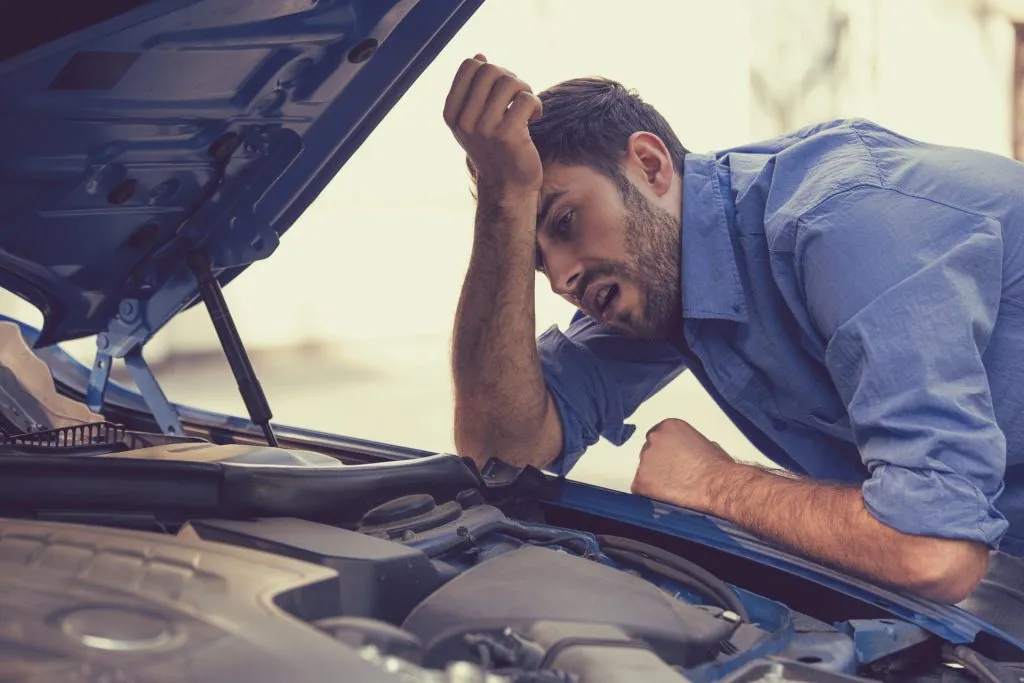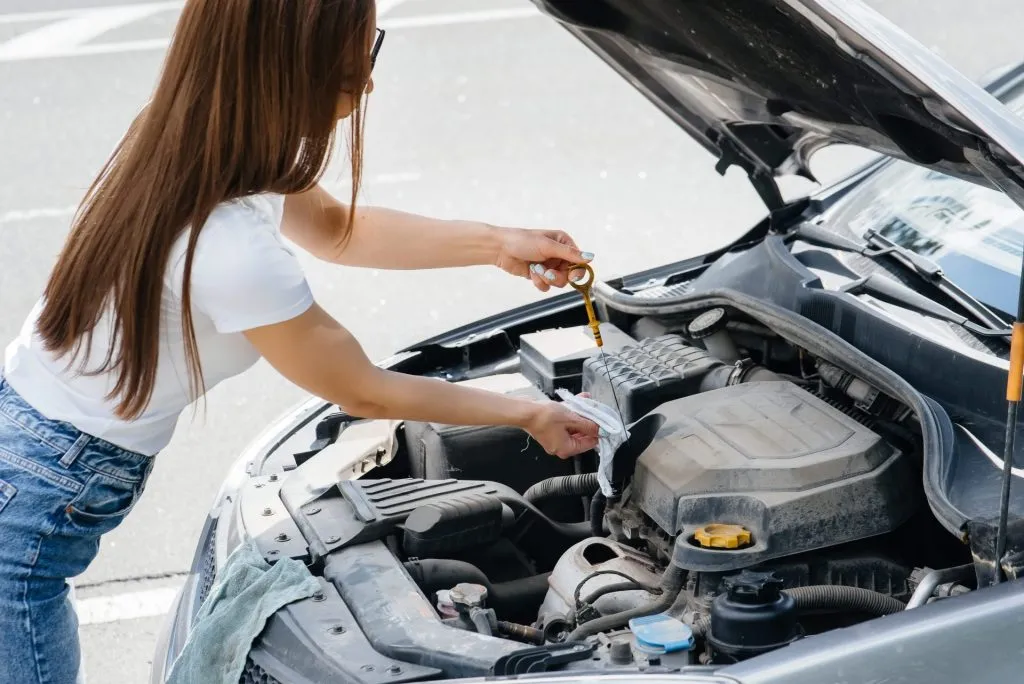Why is my car starting then turning off?
- Reasons Why Your Car Starts and Then Shuts Off
- How to Diagnose Why Your Car Start Then Die?
- What Are the Signs of a Bad Fuel Filter?
- Can a Faulty Ignition System Cause a Car Start Then Die
- Examining the Battery and Electrical System
- Investigating the Role of the Camshaft and Crankshaft Position Sensor
- Other Possible Reasons Why a Car Starts and Dies
It’s annoying and worrying when your car starts and then dies. This problem can catch you by surprise, especially when you’re in a hurry. A car that starts and then shuts off is often a sign of a deeper mechanical or electrical problem that should not be ignored. Understanding the symptoms and causes is key to diagnosing the problem and getting your car back on the road safely and quickly. It could be something as simple as a dirty fuel filter or as complex as a malfunctioning engine control unit (ECU). Understanding the cause is the first step towards solving the problem and preventing further damage.

Reasons Why Your Car Starts and Then Shuts Off
When a car starts then dies, it’s usually because one or more of its critical systems – fuel, air, ignition, or electronics, isn’t working properly. Even if everything seems fine at first, a deeper problem could be preventing the engine from running smoothly.
Check Your Fuel System Issues
Fuel system problems are one of the most common reasons a car will start and stall. The job of the fuel system is to provide the proper amount of fuel to the engine. If the pump is faulty or in bad shape, the engine will not receive sufficient fuel pressure, and you’ll face a situation where the car starts and dies. You can typically hear the fuel pump activate when you turn the ignition switch to the “on” position. If you don’t hear a humming, it may be an indicator that there is something wrong with the pump.
Additionally, a dirty filter may limit the fuel flow and show the same symptom. A fuel filter removes debris and dirt from the fuel supply to the engine. Over time, it can become clogged and lead to the engine not receiving enough fuel. If your car refuses to accelerate or runs poorly, it might be time to check the fuel filter.
Air Intake Problems
Your engine needs the right mixture of air and fuel to run smoothly. If there is a problem with the airflow, such as a dirty or faulty mass airflow (MAF) sensor, it can send incorrect data to the ECU, causing a misfire. Vacuum leaks can also disrupt the fuel-air ratio, as can a clogged throttle body or air filter.
Check the Spark Plug
A faulty spark plug can cause your car engine to die after starting, which might require car engine repair. Spark plugs assist in igniting the air-fuel mixture in the engine. The engine cannot produce the necessary spark using a worn-out or defective spark plug, and the engine will begin to run and stall afterwards.
Faulty spark plugs may cause engine misfire, poor fuel economy, and hard engine starting. Spark plug maintenance and replacement at an early stage helps to avoid this.
Faulty Anti-Theft System
Modern cars often come with immobilizers or anti-theft systems. If the system doesn’t properly recognize your key or fob, it may allow the car to start but quickly shut off the fuel or ignition systems to prevent theft.
Idle Air Control Valve Problems
The idle air control (IAC) valve helps regulate your engine’s idle speed. If it fails, the engine may start but be unable to maintain the idle speed, so it shuts down immediately.
The Role of the Engine Control Unit in Starting Problems
The Engine Control Unit (ECU) is the brain of your vehicle, managing various engine functions. If the ECU is malfunctioning or has faulty sensors, it may send incorrect signals to the engine, causing it to start and then shut off.
Diagnosing ECU-related issues often requires specialized equipment, so it’s best left to professionals. They can run diagnostic tests to check for error codes that indicate problems within the ECU or its associated sensors.

How to Diagnose Why Your Car Start Then Die?
Checking for Fuel Pump Functionality
Start by checking the fuel pump. There’s quite a bit you can do to verify whether the issue lies in it. You may be dealing with a clogged or malfunctioning fuel filter, a dirty injector, or a stuck-open valve in the pressure regulator, which could flood the engine or lead to a lack of fuel reaching the combustion chamber.
You can do this by listening for a humming sound when you turn the ignition to the “on” position (without starting the engine). If you don’t hear anything, the fuel pump may need to be replaced. Turning the key to the “on” position activates the fuel pump, which produces a low buzzing noise from the fuel tank.
You can even try removing the fuel cap, as the sound of the pump may echo through the opening. If you still don’t hear a hum, locate the fuel pump’s positive wires and use a multimeter to check if the pump is receiving voltage. If it isn’t, there may be corrosion in the connection at the fuel pump.
Fuel Pressure Testing
You can perform a system pressure test using a fuel gauge to check whether the pump is delivering the proper flow. If it’s below the manufacturer’s specifications, it may indicate a failing fuel pump.
Inspecting the MAF Sensor for Malfunctions
The Mass Air Flow (MAF) sensor measures the amount of air entering the engine and helps determine the correct fuel-to-air ratio. It sends this information to the ECU, typically measured in grams per second. The sensor uses a heated element that is cooled by incoming air, more airflow requires more current to maintain the element’s temperature, indicating a higher air volume. A faulty MAF sensor can send incorrect data to the ECU, which may cause the car to start and then shut off immediately.
Inspect the sensor for dirt or damage, and clean or replace it as necessary. A dirty MAF sensor can lead to a lean air-fuel mixture, which might not provide enough fuel for proper combustion. Try cleaning it with a dedicated MAF cleaner first, as this is much more cost-effective than replacing the sensor outright.
Identifying Vacuum Leaks in Your Vehicle
Vacuum leaks can disrupt the air-fuel mixture, leading to stalling. Check for any cracked or disconnected hoses in the intake system.
A smoke test can help identify leaks that may not be visible to the naked eye. This method involves introducing smoke into the intake system and observing where it escapes, indicating a leak.

What Are the Signs of a Bad Fuel Filter?
A bad or clogged fuel filter can lead to a variety of engine performance problems. The filter’s job is to prevent dirt, debris, and contaminants from entering the engine. Any blockage can restrict the amount of fuel delivered to the combustion system and throw off the proper balance of air and fuel needed for efficient operation.
- One of the earliest and most noticeable signs is difficulty starting the car. If the filter is partially clogged, the engine might still start but struggle to stay running. You may notice the engine cranks for longer than usual or even stalls shortly after starting.
- Poor acceleration is another common symptom. If your car feels sluggish when you press the gas pedal, it might be due to inconsistent fuel delivery. The engine isn’t able to regulate the amount of fuel properly, causing it to respond slowly or lack power.
- Engine misfires or rough idling can also be linked to a failing fuel filter. The uneven supply disrupts the ideal amount of air and fuel needed for smooth combustion, causing the engine to run roughly. In some cases, you might hear sputtering sounds or feel vibrations while driving or waiting at a stoplight.
- A decrease in fuel efficiency can happen over time as the engine struggles to compensate for the limited fuel supply. You might notice you’re filling up more often, even though your driving habits haven’t changed.
- In more severe cases, the car might stall at random, especially when going uphill or under heavy load. If the fuel filter is almost completely blocked, the engine may die and refuse to restart until you replace the fuel filter or clear the blockage.
If any of these symptoms appear and you haven’t replaced the fuel filter in a while, it’s a good idea to inspect or replace it. While fuel filters are relatively inexpensive, ignoring the problem can lead to more serious damage to your fuel pump or injectors over time.
Can a Faulty Ignition System Cause a Car Start Then Die
The ignition system is responsible for generating the spark needed to ignite the air and fuel mixture inside the engine’s cylinders. Without a strong and consistent spark, the engine can’t keep running. Sometimes, the switch may be worn or failing. This can result in the engine starting initially but losing power almost immediately because the switch stops sending the necessary electrical signals. This system is made up of different components, including the ignition coil, distributor, spark plugs, and ignition timing. The failure of any one of these parts can cause stalling after a brief start.
Understanding the Importance of the Ignition Coil
The ignition coil converts the battery’s low power into the high energy needed to ignite the spark plugs, while also preventing voltage spikes that could harm the system. When the ignition coil is faulty, it can’t deliver enough energy to keep the engine running, causing the car to crank and then shut off.
Some symptoms of a faulty ignition coil are:
- Difficult engine starting
- Engine misfires
- Bad gas mileage
- Stalling while driving
As noted earlier, spark plugs play the crucial role of igniting the air-fuel mixture. When they are dirty or worn out, they will not be able to produce a spark that is strong enough, and the car will start and then die.
Inspect the spark plugs for wear in the form of corrosion, deposits, or cracks. Replacing worn-out or old spark plugs helps to increase engine power and prevent a case when your car starts and then turns off.

Examining the Battery and Electrical System
If the car battery isn’t providing sufficient power, the engine may start briefly before shutting off.
- Ensure the battery is fully charged. A weak battery may not provide a charge, causing starting issues.
- Check the battery terminals for corrosion or loose connections. Clean any corrosion and ensure connections are tight for optimal performance.
- Your battery might be old and sulfated. A sulfated battery struggles to hold a charge for long, which often leads to situations where the battery is weak or completely unresponsive. To fix this, either replace the battery or use a charger with a conditioning function. If you choose conditioning, be sure to trickle charge the battery and run the de-sulfate cycles repeatedly over several days for the best results.
- The battery may also be drained by an electrical short. A bad starter can parasitically drain the power source until the battery is dead. This happens when the faulty starter develops a short that constantly draws power, even when the car is off. Also, don’t overlook the key fob battery – if it’s low, it can cause issues with starting the car or unlocking the doors, which may seem like a weak main battery.
Other possible causes of a dead battery are:
- The alternator is faulty, either a short circuit that is draining the battery, or the generator isn’t charging the battery.
- A bad ignition switch needs to be replaced.
Investigating the Role of the Camshaft and Crankshaft Position Sensor
The crankshaft and camshaft sensors monitor the position of the engine components and relay this information to the ECU. If either sensor fails, the ECU may receive incorrect or no information at all, which can prevent the engine from running after it starts. The common signs of failing crankshaft or camshaft sensors include:
- The engine stalls while running
- Hard starting or failure to start
- Check engine light illumination
If you suspect an issue with these sensors, it’s important to have them diagnosed and replaced if necessary.
Other Possible Reasons Why a Car Starts and Dies
Throttle Body Issues
The throttle body controls the amount of air into the engine. If it becomes dirty or starts to malfunction, it can disrupt this balance, causing the engine to stall. Cleaning the throttle body can improve the airflow and performance. If you notice excessive carbon buildup, it may be time for a cleaning or replacement.
Air Filter Blockage
A clogged air filter can limit air intake, affecting the engine’s ability to maintain efficient combustion. This restricted airflow can cause the car to stall shortly after starting, especially in situations where the engine requires more oxygen. Regular inspection and replacement of the air filter help maintain proper fuel flow to the engine and ensure it receives the air it needs to keep it running.
Fuel Quality Problems
Low-quality or contaminated fuel can interfere with proper combustion, leading to situations where the car may start and then immediately shut off. Dirty gasoline may clog the fuel injector or disrupt pressure in the fuel rail, limiting the delivery of it to the engine. If you’ve recently refuelled at an unfamiliar station or suspect contamination, draining the tank and using high-quality gasoline may resolve the issue and restore normal engine function.
Engine Overheating
If the engine overheats, it may shut down as a protective measure to avoid internal damage. This condition is more common in older cars with carburetors or engines with worn-out cooling systems. Consistently high temperatures reduce the efficiency of the engine and may cause stalling shortly after startup. Make sure to check coolant levels and inspect the system to avoid a condition that the system can cause repeatedly. Ignoring overheating can lead to severe engine damage that’s costly to repair.
Need Help Identifying the Issue?
If your car starts and then suddenly shuts off, it could be a sign of serious electrical or fuel system issues. Don’t wait until it breaks down completely. Get a Car Diagnostic at Golden Horse to pinpoint the problem early and avoid costly repairs. Our experts in Dubai will check your ignition, battery, fuel injectors, sensors, and more — all in one visit. Book your car diagnostic today and drive with confidence.




